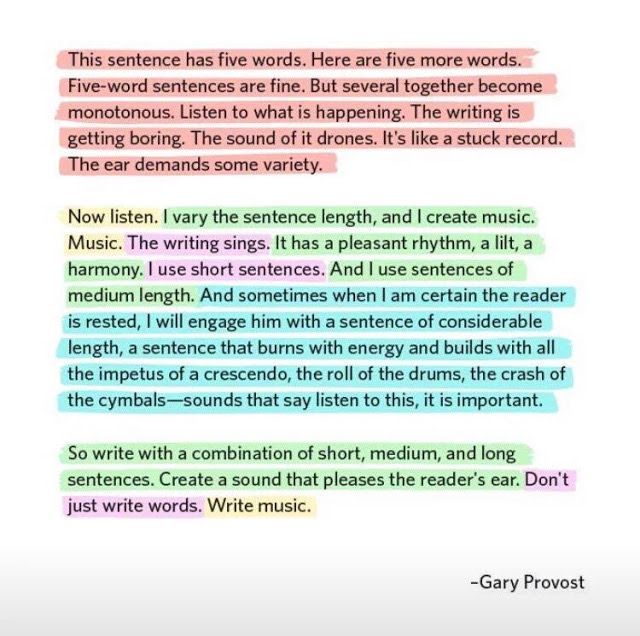
You rebel, you.
You rulebreaker.
You’re audacious. And you know what? That’s cool. That’s not the end of the world. If you know why the rules are there, and you have a pretty good idea of what the outcome will be if you break those rules, things might turn out well. Break them because ugh, whatever, okay Boomer? Might turn out less well.
Let’s say your plane is crashing. You’re over water. Is your kind of plane supposed to land on water? No. Did Sully Sullenberger do it? He did. And now congratulations, you’re using your seat cushion as a flotation device and stuck smelling a decade’s worth of pilot farts until the Coast Guard comes and picks you up. Because you aren’t Sully Sullenberger.
Sully Sullenberger was able to safely ditch that Airbus A320 in the Hudson River because, while he didn’t know anything about landing on rivers, he knew All The Other Stuff about flying an Airbus A320. And that gave him the ability to safely break the rule about, y’know, landing on water, and everything came out okay.
Could you become the Sully Sullenberger of copywriting? I don’t know, because I have no idea what that would look like, but maybe. There are classic copywriting rules you can break to make your writing better — as long as you know why they’re there in the first place. I’ve outlined some of them here, so you, too, can be a fantastic, effective writer and not have to spend your career smelling pilot farts and not knowing why.
Monotony
You might have seen this graphic from writer Gary Provost floating around the advertising and writing community.

This sentence has five words. Here are five more words. Five-word sentences are fine. But several together become monotonous. Listen to what is happening. The writing is getting boring. The sound of it drones. It’s like a stuck record. The ear demands some variety.
Now listen. I vary the sentence length, and I create music. Music. The writing sings. It has a pleasant rhythm, a lilt, a harmony. I use short sentences. And I use sentences of medium length. And sometimes when I am certain the reader is rested, a sentence that burns with energy and builds with all the impetus of a crescendo, the roll of the drum, the crash of the cymbals — sounds that say listen to this, it is important.
So write with a combination of short, medium, and long sentences. Create sound that pleases the reader’s ear. Don’t just write words. Write music.
To be clear, I’m not criticizing that graphic at all. I like it. I think it’s accurate. Not only do I think it’s accurate, in fact, I think it’s even more accurate than maybe it intended.
Because read that whole thing again. Think about the way you feel by the time you get to the end of the first, fairly monotonous paragraph. Think about the tension. Think about how much you were craving interest and variety, and how good it felt to get to that second paragraph.
It’s like a good drop in club music. (Did I just age myself?) The drop is that much better for having the build-up of that fairly monotonous build. What otherwise might have been really good is now ecstatic. And while “ecstatic” probably won’t be the goal or outcome of your copywriting efforts (and If it is, tell me how), that relief of tension really affects your audience, and it works in large part because of that boring, repetitive copy that preceded it. I mean… yeah, for real, make music.
But you have to wield this tool consciously and carefully. And you have to recognize that and why writing monotonously is, as a rule, a no-no. Then you can break it, strategically, to reach your audience.
“Bad” Grammar
Know how to write good. And when not to write good.
Why do the rules of grammar say not to use an apostrophe to make things plural? Because apostrophes are for other things, and it would get confusing. Why should you always use the Oxford comma? Because it’s objectively better, and also it avoids confusion. Why are we not meant to split infinitives? For no reason at all. Because someone guy in the 19th century decided there needed to be a rule about that, and we’ve just held onto it for 150 years for no reason.
If you’re reading this, you’re probably writing advertising copy rather than, like, super-serious white papers and proposals and such. (Realistically, if you’re reading this, you’re probably a software architect out in Portland. Hi, Tom!) Creative work gives you a lot more leeway with your grammar. With ad copy, not only are the grammar rules not always necessary, following them to the letter can produce stilted language that will alienate your audience, and that is something up with which I will not put.

So go ahead. Split your infinitives. Start your sentence with a conjunction. Throw in a sentence fragment or two. Do it with intent — don’t do it because you’re too lazy to properly grammar, or you weren’t paying attention in third-grade English class. Do it because you know doing so is the best way to connect with your audience. And if you get any pushback, just tell ‘em Caperton said it’s okay, and that will mean nothing to them, and then make your case about why writing ungrammatically is the better move in this situation.
(“There/their/they’re” and “your/you’re” and “too/to” and “it/it’s” are non-negotiable, though. That’s grammatical table stakes.)
(And for real, any editor or whatever who dings you for starting a sentence with a conjunction can sit on a pin.)
Jargon
It’s commonly said that jargon is a great way to alienate your audience. And that’s true. Use a bunch of words they don’t understand, and they’ll go Ugh and turn the page. (Click to the next tab. Whatever.)
But jargon can also be uniting. It can be a banner to gather under. If your target audience is a particularly tight community, strategically deployed jargon can be a signal that hey, we’re one of you. The Copy Prescription gives a great example in CrossFit. Would your general audience know what a WOD is? No, but they don’t have to, as long as your target audience is ready to… crush it, I don’t know, I don’t do CrossFit, because I don’t like being yelled at.
We’re also told that jargon can be baffling and intimidating, and your audience will feel baffled and intimidated, and that’s bad. But what if you want to baffle them, like, just a tiny little bit? What if your client is an expert in their field, working for clients who are less expert and having to really trust your client’s expertise? It could be to your advantage to go just the tiniest bit over their head. This flatters them with the implied assumption that they’re more knowledgeable than they really are, and it reinforces the idea that they don’t know everything about their field and should hand those needs off to someone who does know everything about their field.
It doesn’t work if you go completely over their head. It doesn’t work if you position your client as some kind of super-genius who wouldn’t even be able to communicate with them, or if you use so much jargon that the reader can’t even understand what you’re saying. Strategic use of jargon requires a deft hand, and that starts with an understanding of why you’re not supposed to be using jargon in the first place.
Rules not to break
Some rules should not, regardless of your skill in that area, be broken.
If the rule is “don’t actively insult your audience”? If it’s “don’t perpetuate stereotypes”? If it’s “don’t be so enamored with your own words that you forget who you’re writing for”? Don’t break it.
But why, Caperton? Why can some rules be broken and others not broken?
That’s actually an excellent question, and good on you for asking it. Those rules shouldn’t be broken because there’s no positive outcome from breaking them. The third one there is just logic — if you’re writing for yourself and not keeping your audience in mind, you aren’t going to connect with them, and your work is going to be bad. Ditto the first one. The second one? It’s just bad for society, y’all. It makes the world worse. Not to get all political, since I never do that (ha!) but try to make the world better, and if you can’t, at least don’t make it worse.
Learn the rules, know the rules, internalize the rules. Know what you’re trying to achieve by breaking the rules. And then, hell, break ‘em. You are your own person. You can’t be contained.
Also, use exclamation points, ellipses, and ampersands sparingly. Why? Because I don’t like them, and you shouldn’t do things I don’t like.
And that is a rule never to break.

